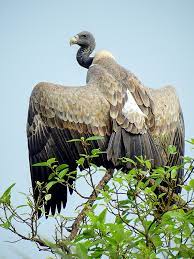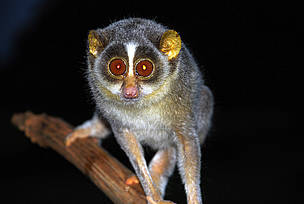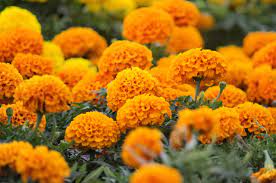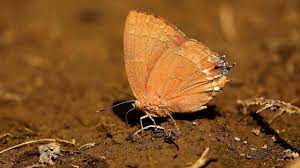Indian Vultures | UPSC | Why In The News ?
National Board for Wildlife (NBWL) has approved an Action Plan for Vulture Conservation 2020-2025
About Vultures In India :
- Vultures are sociable creatures and are often seen as a collective unit.
- Out of 23 species of vultures in the world, nine are found in India.
- The preferred habitats of the Vulture are deserts, savannas and grassland near a water source.
- They soar in circles high above the Earth’s surface. They use the rising air currents to maintain their elevation.
- It also inhabits open mountain ranges up to 3,000 metres above sea level.
- Vultures are widely distributed across The World.
- They are absent from Australia and most oceanic islands.
- They soar in circles high above the Earth’s surface.
- They use the rising air currents to maintain their elevation.
- Bald head and sometimes bald throat (help in regulating their body temperature)
Conservation Status: Indian Vultures | UPSC |
|
IUCN Status |
|
| CITES |
|
| Wildlife Protection Act |
|
Conservation Initiatives By Government Of India :
The National Board for Wildlife(NBWL) has approved an Action Plan for Vulture Conservation 2020-2025. Key highlights of the plan include,
- Uttar Pradesh, Tripura, Maharashtra, Karnataka and Tamil Nadu will get a vulture conservation and breeding centre.
- Establishment of at least one vulture-safe zone in each state for the conservation of the remnant populations in that state.
- A system to automatically remove a drug from veterinary use if it is found to be toxic to vultures with the help of the Drugs Controller General of India.
- Coordinated nation-wide vulture counting involving forest departments, the Bombay Natural History Society, research institutes, nonprofits and members of the public. This would be for getting a more accurate estimate of the size of vulture populations in the country.
- A database on emerging threats to vulture conservation including collision and electrocution, unintentional poisoning.
Establishment of four rescue centres, in
- Pinjore (Haryana)
- Bhopal (Madhya Pradesh)
- Guwahati (Assam)
- Hyderabad (Telangana)
There are currently no dedicated rescue centres for treating vultures.
Read Also : Species In News
- The Himalayan Brown Bear | UPSC | IUCN Status
- Spotted Angle Butterfly | UPSC | Explained
- The Branded Royal Butterfly | UPSC | Explained
- Ypthima Watsoni Butterfly | UPSC | IUCN Status
- Caracal UPSC | IUCN Status
- Sitana Dharwarensis Fan-Throated Lizards | UPSC
- Genus Rohanixalus New Tree Frog | UPSC | Explained
- Ypthima Watsoni Butterfly | UPSC | IUCN Status
- Wildlife Protection Act 1972 UPSC | Explained
- Rare Yellow Turtle UPSC | Species In news
Source : The Hindu, Indian Express, IUCN









